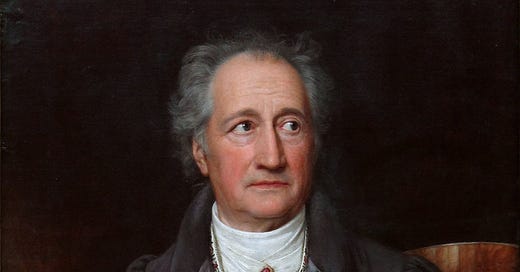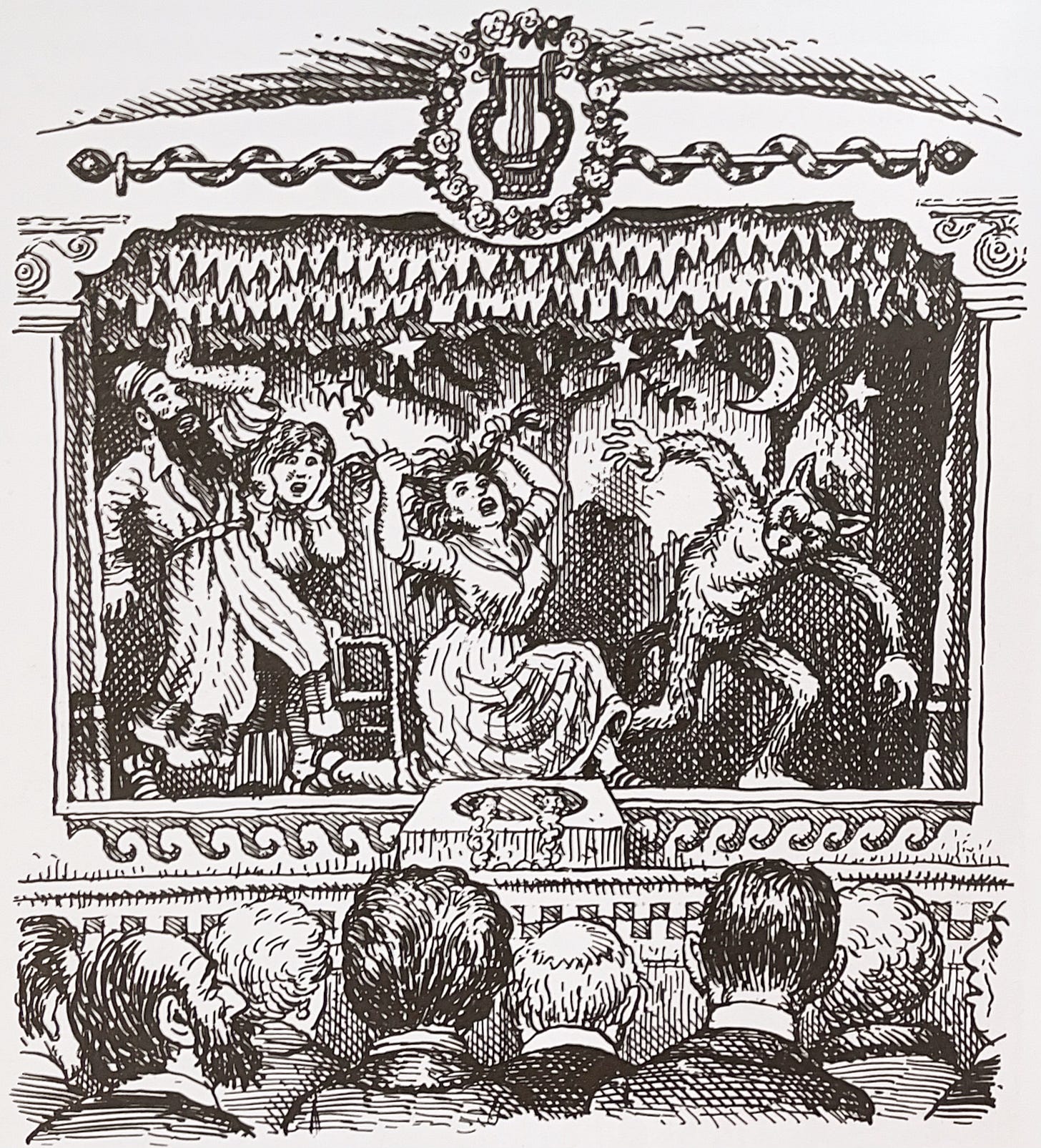Between Goethe and Grete
Wherein we trace Kafka's attempts to find inspiration through literary fathers and female muses during a crucial period of creative paralysis.
Let’s go back to 1912. By March, Franz Kafka’s passionate affair with Jewish history and Yiddish theatre had begun to cool. For months, he had thrown himself into this world, befriending the actor Jizchak Löwy and defending Yiddish culture against Prague’s German-speaking establishment. But now, something had shifted. His diary captures this cooling of ardour with blunt simplicity: ‘Coolness toward Löwy for two days. He asks me about it. I deny it.’1 A few weeks earlier, he had noted his ‘susceptibility to the Jewishness in these plays abandons me, because they are too monotonous and degenerate into a wailing.’
In place of this waning theatrical obsession came something equally consuming: Goethe. Kafka immersed himself in everything Goethe-related with an intensity that almost overwhelmed his own writing. (This, by the way, sounds like my own situation regarding Kafka!) His diary entries from this period paint a picture …
Keep reading with a 7-day free trial
Subscribe to Paper Knife to keep reading this post and get 7 days of free access to the full post archives.





